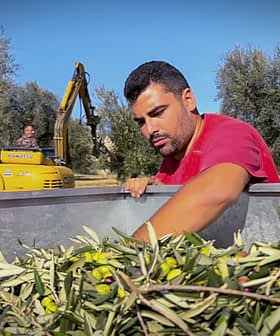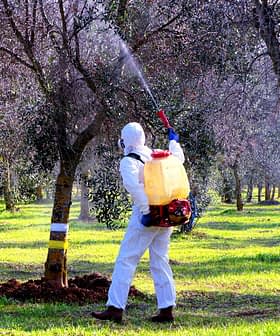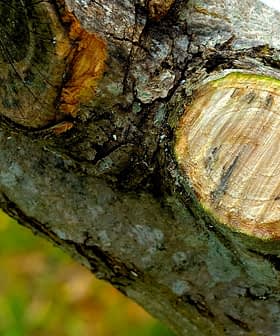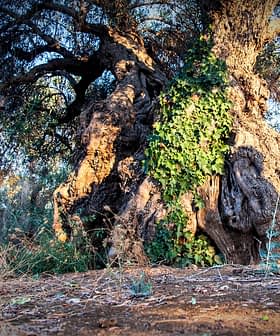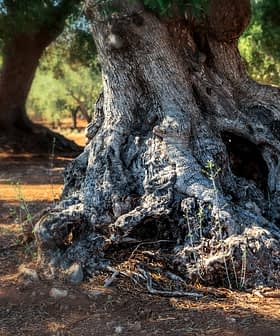Olive Tree Felling Starts in Apulia Amid Protests
Italian forestry officials have started cutting down infected olive trees in the Salento region of Apulia due to a deadly bacterium, Xylella fastidiosa, which has spread over 74,000 acres of olive groves. The European Commission’s controversial proposal to cut down 11 million olive trees in the region in an attempt to contain the outbreak has sparked protests, with opponents arguing that the drastic measures will not effectively eradicate the infection.
This week Italian forestry officials began cutting down infected olive trees in the Salento region of Apulia (Puglia). The infection of over 74,000 acres of olive groves in this region of South Italy has been blamed on the Xylella fastidiosa bacterium, spread by insects.
The destruction of the trees follows a controversial proposal by the European Commission recommending the cutting down of 11 million olive trees in the region to contain the spread of the deadly bacterium.
On Monday the first seven trees were chopped down and burned in Oria, near Brindisi, amid protests by opponents who attempted to stop the destruction of the trees by climbing their branches and shouting “assassins!”. Some of the region’s olive trees are believed to be over 500 years old.
Opponents to the drastic measures say that chopping down the trees will not contain the outbreak while experts maintain that the infection cannot be eradicated without killing the infected plant.
See Also:Complete Coverage of the Xylella Outbreak in Apulia
In response to fears of contamination to other countries of the EU, and in the absence of a consensus on the EU-wide measures to be taken, France recently announced a ban on the import of vegetables and plants from Apulia.



